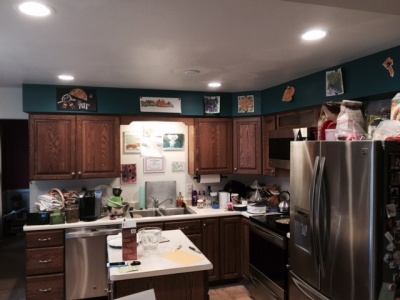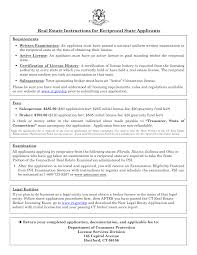
A home purchase is a complex process that requires extensive paperwork and disclosures. Good agents can help you navigate the process and avoid any pitfalls. They will be able to give valuable insight into the market and local area to help you sell your home quickly for the best price.
Listing agents can represent both buyers and sellers. This is called dual agency. Dual agency can be a cost-saving measure that requires the buyer to pay a commission. However, this can lead to buyers being turned away and the home staying on the market for a longer time.
A good agent for listing will perform a market analysis and suggest a listing price that meets current market conditions. The right price can help increase your home's chances of selling quickly and maximize profit. You can avoid the "seller’s market" by choosing a price that is competitive and preventing your home's stagnation.

A great listing agent can screen potential buyers for your benefit. They can tell you what homes are worth buying and what are not. You may also be able to get a quicker closing time. If you need to sell your house quickly, this can be a huge advantage. They can even help you obtain a pre-approval for a mortgage. They can also organize tours that allow prospective buyers to see your property.
Great agents will take care of all the above and answer any questions. They will advise you on the best marketing strategies to attract buyers so that your house sells quickly and for the highest possible price. They can provide advice on staging your home and the best repairs to make. They can also set up professional photography and coordinate open houses, if needed.
A great agent will be familiar with the local housing market, MLS and the current competition. They can tell you the best way to prepare your house for sale and the ways to avoid potential pitfalls. They can also give advice on pricing your home for today's market.
Listing agents are not necessary for everyone, especially if the agent lives in a small community or has been out of the market a while. If you do decide to hire an agent, make sure you do your research before signing on the dotted. Ask for recommendations from your friends and family, as well as reviews and track records of the agents.

A great agent to represent your home is an important step in the home-selling journey. It can save you money and make it easy to close the deal. The listing agent serves as a point of contact throughout the entire process. They can be your ticket for a successful home selling experience.
A professional listing agent will give you advice on pricing your home and what to expect during the negotiation process. A good agent can help you stage your home and suggest simple repairs that will increase its value.
FAQ
How much will my home cost?
This varies greatly based on several factors, such as the condition of your home and the amount of time it has been on the market. The average selling price for a home in the US is $203,000, according to Zillow.com. This
Should I rent or own a condo?
Renting may be a better option if you only plan to stay in your condo a few months. Renting can help you avoid monthly maintenance fees. However, purchasing a condo grants you ownership rights to the unit. The space is yours to use as you please.
What are the disadvantages of a fixed-rate mortgage?
Fixed-rate loans are more expensive than adjustable-rate mortgages because they have higher initial costs. You may also lose a lot if your house is sold before the term ends.
How much money do I need to save before buying a home?
It all depends on how many years you plan to remain there. Save now if the goal is to stay for at most five years. You don't have too much to worry about if you plan on moving in the next two years.
Can I buy a house in my own money?
Yes! Yes. There are programs that will allow those with small cash reserves to purchase a home. These programs include government-backed mortgages (FHA), VA loans and USDA loans. More information is available on our website.
Statistics
- This seems to be a more popular trend as the U.S. Census Bureau reports the homeownership rate was around 65% last year. (fortunebuilders.com)
- Some experts hypothesize that rates will hit five percent by the second half of 2018, but there has been no official confirmation one way or the other. (fortunebuilders.com)
- Over the past year, mortgage rates have hovered between 3.9 and 4.5 percent—a less significant increase. (fortunebuilders.com)
- Private mortgage insurance may be required for conventional loans when the borrower puts less than 20% down.4 FHA loans are mortgage loans issued by private lenders and backed by the federal government. (investopedia.com)
- Based on your credit scores and other financial details, your lender offers you a 3.5% interest rate on loan. (investopedia.com)
External Links
How To
How do I find an apartment?
When moving to a new area, the first step is finding an apartment. This involves planning and research. This involves researching and planning for the best neighborhood. Although there are many ways to do it, some are easier than others. Before renting an apartment, it is important to consider the following.
-
Online and offline data are both required for researching neighborhoods. Online resources include Yelp. Zillow. Trulia. Realtor.com. Other sources of information include local newspapers, landlords, agents in real estate, friends, neighbors and social media.
-
Review the area where you would like to live. Yelp, TripAdvisor and Amazon provide detailed reviews of houses and apartments. Local newspaper articles can be found in the library.
-
Call the local residents to find out more about the area. Talk to those who have lived there. Ask them about their experiences with the area. Ask for their recommendations for places to live.
-
Be aware of the rent rates in the areas where you are most interested. If you think you'll spend most of your money on food, consider renting somewhere cheaper. On the other hand, if you plan on spending a lot of money on entertainment, consider living in a more expensive location.
-
Find out information about the apartment block you would like to move into. What size is it? How much is it worth? Is the facility pet-friendly? What amenities do they offer? Do you need parking, or can you park nearby? Are there any special rules that apply to tenants?